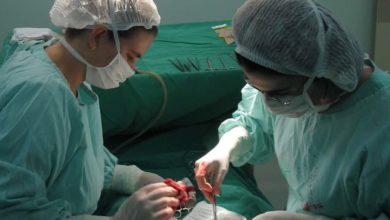Welcome to PDr’s Weekly Weigh-in! Each week, we ask medical students and physicians to weigh in on some of our most frequently asked pre-med questions.
This week’s question: What’s one thing you wish you had known before starting the AMCAS application process?
Evan Laveman, DGSOM MS2
There are many things that I wish I had known before starting the AMCAS application, here are 2 of them. The first is recognizing how long it may take to secure all of your letters of recommendation. Fitting the time of busy professionals into your own personal timeline for your AMCAS submission can be a tricky feat, and that’s why I always suggest starting as early as possible with each professor or contact that you are requesting a letter from. Last minute letters can stall the progress of your entire application, and it’s a shame to have an application that you’ve worked so hard on hinge on a letter from someone who you have no real control over. Second, I wish that I had understood what the verification process for the primary application entailed. The verification timeline can vary drastically depending on when you submit, based off of how many current applications are currently under review at that time. If you apply on the first day (usually June 5/6), it can take a few days to get verified, and you are then eligible to receive/submit secondaries. However, if you submit in the beginning of July, as I did, It can take upwards of 20 days to get verified. This time can be used wisely to prewrite secondaries and “catch up” with the earlier primary submissions, but it’s still beneficial to realize that if you submit your application a month after someone who submitted theirs on the first day, the effective gap between your verified primary applications may be closer to a month and a half. There are plenty of good reasons that an applicant may submit their application a month or so into the eligible submission window, such as waiting for strong semester grades to be posted, waiting for LORs, waiting for an MCAT score etc… It will not sink your application, but do your best to be verified before mid August so that you can be eligible for the entire interview season.
Evan Shih, DGSOM MS2
Everybody talks about the pre-writing your personal statement when discussing the AMCAS application process, but there is little discussion about the Work/Activities section, which ends up taking nearly just as much time as the personal statement, if not more. The Work/Activities section is where you get to describe all the student organizations, volunteer efforts, and medical experiences that you partook in on your way to becoming a qualified medical school applicant. Describing your extracurricular activities is time consuming but can be fairly straightforward, so it’s recommended get them organized before the application opens. Here are the specifics:
- A maximum of 15 experiences may be entered (700 characters for a description)
- Each experience must also have a designated “Experience Type, Title, Hours/Week, and Contact Info”
- A maximum of 3 “most meaningful” experiences (an additional 1,325 characters to explain why)
The same way that ProspectiveDoctor recommends writing your personal statement and secondary essays early, we also encourage applicants to have the Work/Activities section written ahead of time on a separate Word Document. This ensures that your application can be submitted with the first batch and you can receive your secondary applications and interview invites early in the cycle.
Brandon Brown, UCSF MS1
I wish I talked with a counselor or someone with wisdom on how many schools to apply to. I did not have a good idea of my competitiveness and therefore applied to too many schools and spent too much money (and time) on secondaries and interviews. While it might be tempting to “play it safe” and apply to a ton of schools, it may be financially burdensome and a huge time sink filling out a bunch of secondary applications. I definitely felt a bit overwhelmed with secondaries and consequently the quality of some of the secondaries was suboptimal, which I think actually resulted in some missed opportunities. In retrospect, I would done a better job at evaluating my own competitiveness, and would have only applied to an appropriate number of schools that I could actually see myself attending.
Edward Chang, DGSOM MS2
I wish I knew starting from freshman year of college about how we are supposed to record our extracurricular activities in AMCAS. For each activity, you have to put the dates when you were involved (month/year) and how many hours per week you were involved. If I knew that starting freshman year, I would’ve kept a log of all my activities with exactly that information (probably in my curriculum vitae or resume). It took me a long time to dig up all that information and to make sure it was accurate. On a similar note, it would’ve been nice to note that there are many different categories of activities that you can put on there.
Here are some examples of the categories:



